Real-Life Tasks That Build Executive Functioning and Social Skills-Part 2 of 2
Welcome back to Part 2!
This week’s newsletter is broken into two shorter parts for easier reading. If this format is helpful for you or you prefer to get one per week, I’d love to know—just reply and let me know your preference!
➡️🔗www.NorikoAbenojar.com/Newsletters to view all past newsletters
➡️🔗www.NorikoAbenojar.com/Masterclass ~ check them out!!
➡️Keep reading even more for: NORIKO’S NOTES: sharing my life’s simple joys 💜
Executive functioning and social development don’t just happen in classrooms—they grow through practice in daily life.
In this second part, we continue exploring how real-world tasks can build independence, confidence, and critical thinking skills. With just a little structure and reflection, simple routines can turn into powerful learning moments.
🍽 Prepare a Meal or Host a Dinner Party
-
Choose a recipe
-
Make a list, prep
-
Cook, serve, and clean up
-
Bonus: Let them set a theme and decorate for fun.
Skills practiced: Multi-step planning, following directions, calm under pressure
🧃 Organize a Take-Out Night at Home
-
Decide on a restaurant and take orders from each family member
-
Place the order online or by calling
-
Handle the payment transaction
-
Pick up the food or receive the delivery
-
Make sure everyone has their food before eating
Skills practiced: Organization, sequencing, communication with family and public
👶 Co-Babysit with a Parent
Plan a short activity with a younger sibling, cousin, or neighbor:
-
Think ahead about their needs and interests
-
Choose appropriate activities and snacks
-
Be aware of how the child is feeling or acting and adjust accordingly
-
Reflect afterward on how it went with the parent
Skills practiced: Empathy, adaptability, leadership
📸 Make a “How-To” Video
Pick something your child is interested in—drawing, soccer, building LEGOs, etc.—and make a short tutorial video.
-
Plan the steps
-
Write or speak clearly
-
Record and re-watch
-
Share with family or friends
Skills practiced: Sequencing, explaining, public speaking, perspective-taking
From My Social Groups at SCLC...
In my teens social skills groups, I use a monthly “allowance” system. Each group gets a small budget (e.g., $20/month) and decides together how to spend it—no saving it for the next month.
At first, they usually divide it evenly: “Everyone gets $4 per month.” They quickly realize that $4 per month, when they could go to the store each week, doesn’t go far—and it becomes more appealing to pool their money and buy larger, shareable snacks. That often means practicing flexibility: not getting exactly what they want in exchange for reaching a group goal.
It’s a simple routine that builds:
✅ Group decision-making
✅ Speaking up and listening
✅ Flexibility and teamwork
It’s executive functioning—and social growth—in one snack run.
Thanks for reading both parts of this week’s newsletter!
I hope it sparks a few ideas you can try at home now or this summer—even just one small shift can lead to big growth.
NORIKO'S NOTES: sharing my life's simple joys💜
Speaking of using daily activities to teach executive functioning and social skills...I remember I used to run a "MOMMY CAMP" for my kids. It basically meant that on certain weeks of the summer, the kids were not signed up for any community camps. So they would either hang out with me at the office or I would take time off to be with them. Instead of it being just a week off, I called it MOMMY CAMP and I tried to have them learn through daily activities...just like I have shared with you this week. One thing I remember is teaching them how to pump gas. I can't remember exactly how old they were, maybe 8 and 9 years old'ish (they are 15 months apart). I would pull up to the gas station, and teach step by step how to do the whole transaction, including paying for it by card and by cash. They had a great time doing this and were probably surprised how much money I had to pay to fill up the good ol' minivan!! A side benefit I experienced: when they were using their frontal lobe for their executive functioning tasks like this, it reduced the back and forth negative interactions between them!! Instead of being involved in this task passively or arguing in the backseat while I pumped the gas, it became a shared experience that they enjoyed together...and we know from the Friendship Navigator how important shared experiences are :) Ahh... I miss those days!! I LOVED making daily tasks into an activity to enjoy together.
Thank you for letting me share my simple joy💜 .
Gratefully yours,
Noriko
ONLINE MASTERCLASSES NOW OPEN:

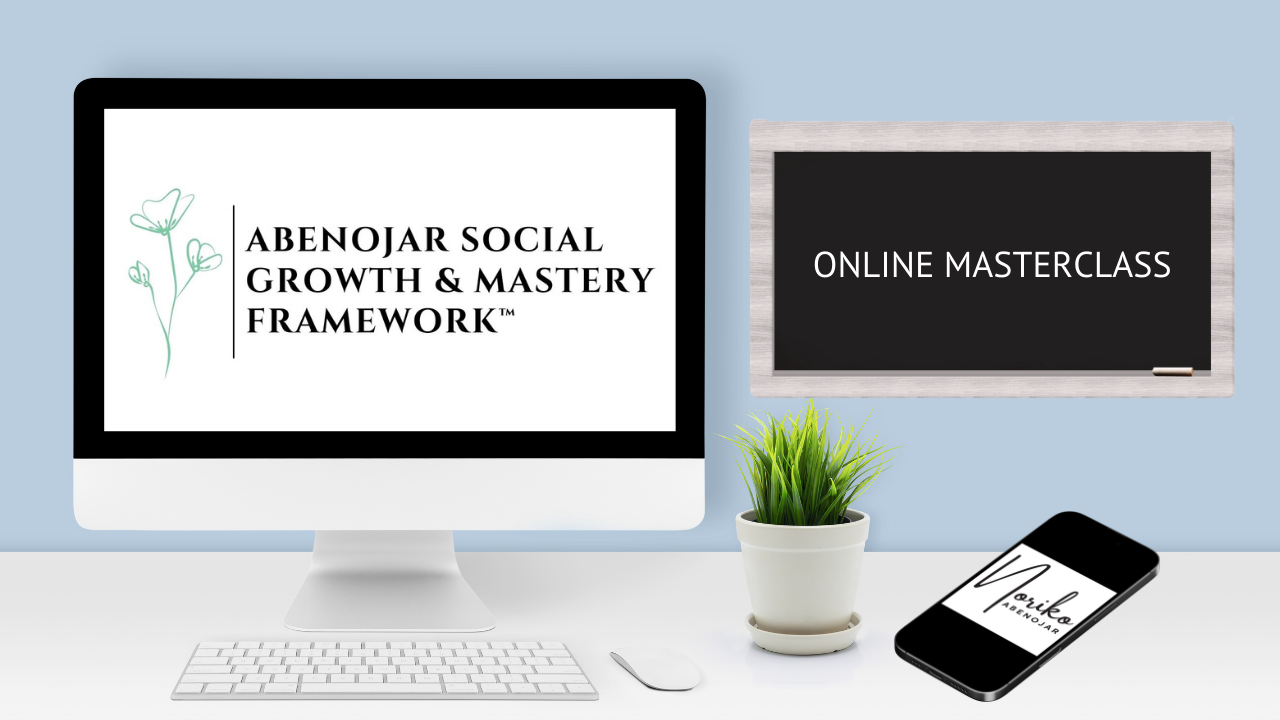
FREE - The Abenojar Social Growth & Mastery Framework™ Masterclass is here!
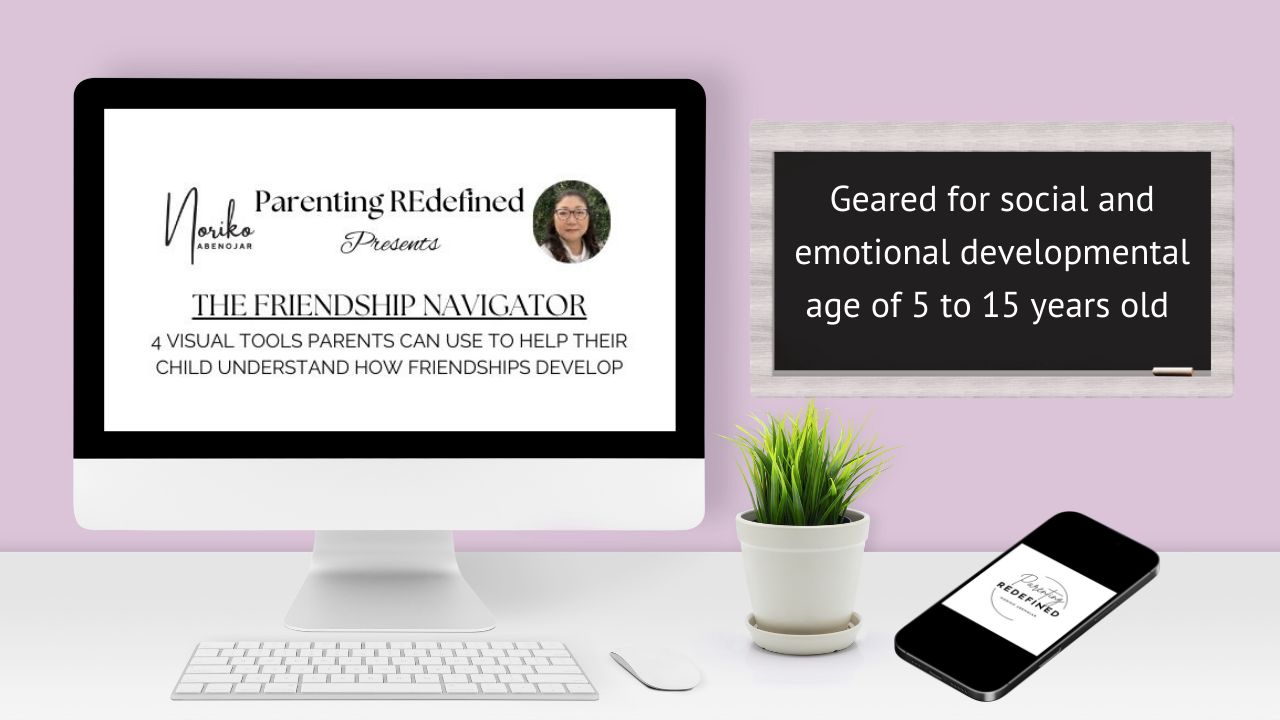
FRIENDSHIP NAVIGATOR - 4 Visual Tools Parents Can Use to Help Their Child Understand How Friendships Develop
Please Help Spread the Word!
The more awareness we bring to the importance of social skills development, the more schools and workplaces will recognize the importance of inclusivity and the need for meaningful social support.
Please share this link: Parenting REdefined Newsletter (www.NorikoAbenojar.com/subscribe) to friends, families, teachers, or other professionals - encourage them to subscribe so that they don't miss announcements and new newsletters.
Noriko Abenojar, MSW PPS
Parenting REdefined
www.NorikoAbenojar.com
www.SocialAndCognitiveLearningCenter.com
Instagram: @NorikoAbenojar
Facebook: Parenting REdefined by Noriko Abenojar MSW PPS
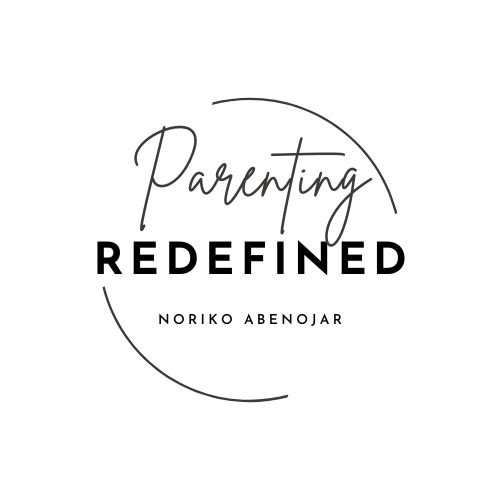
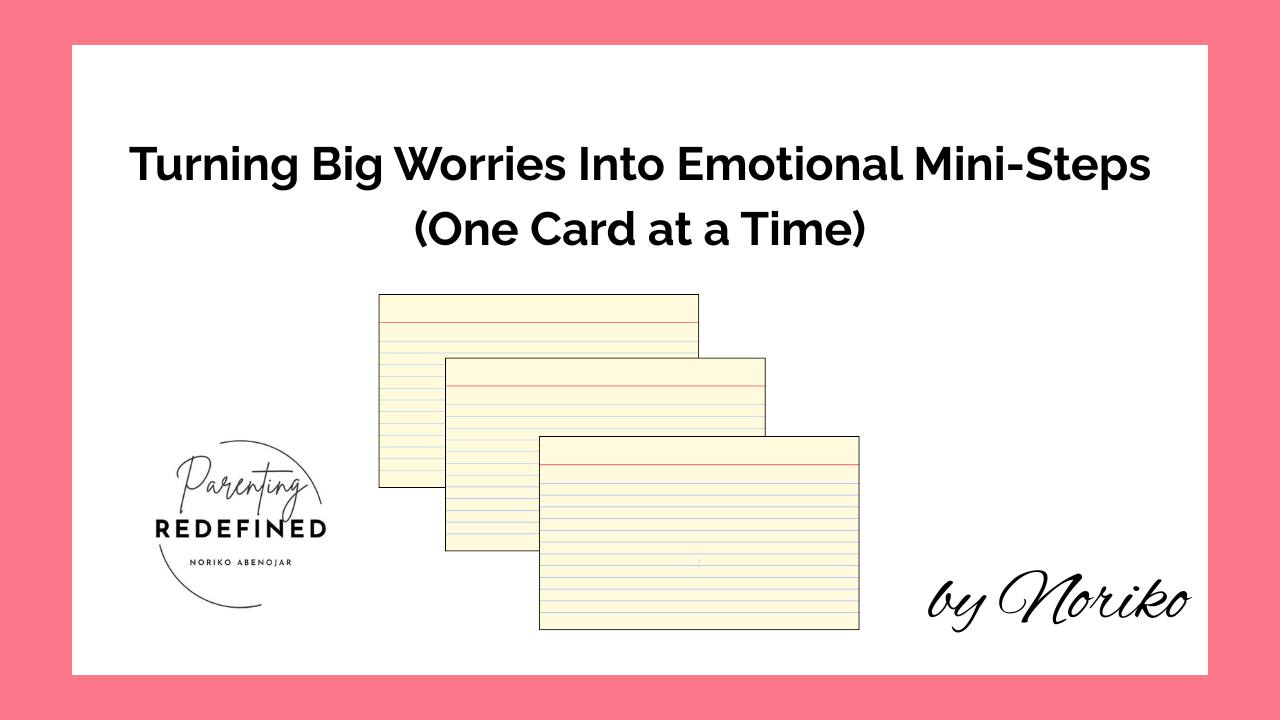
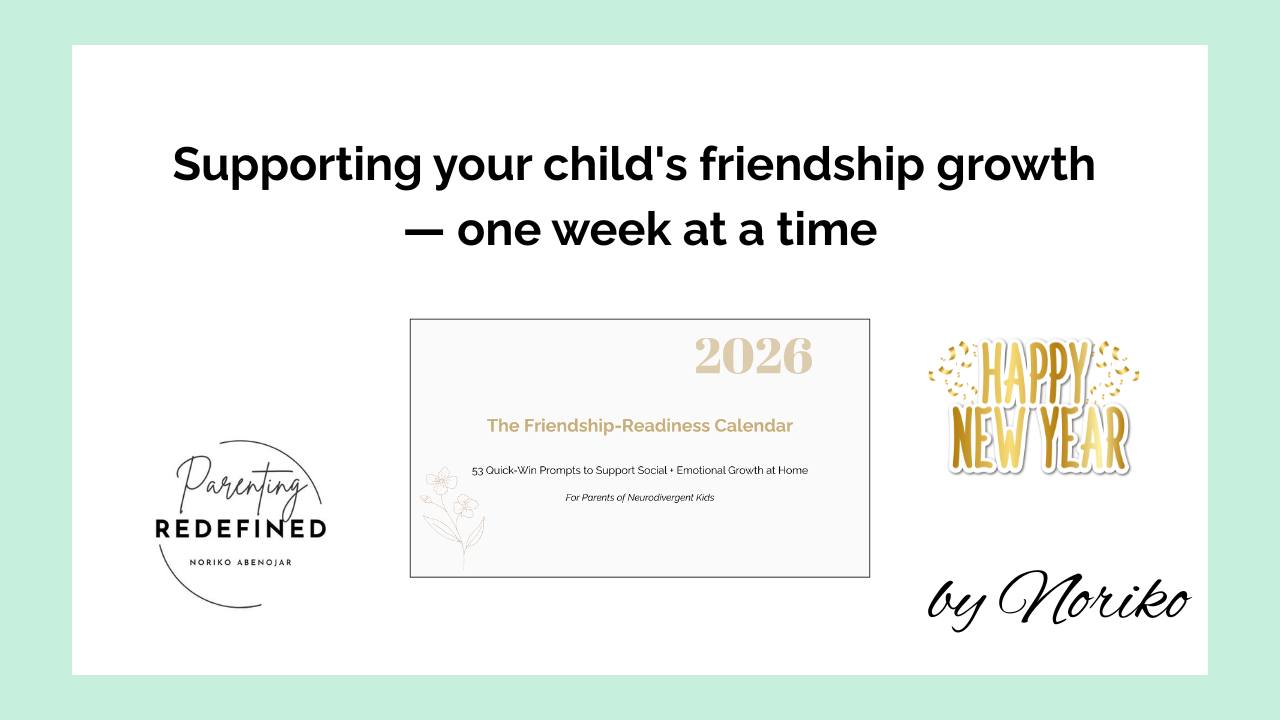



Responses